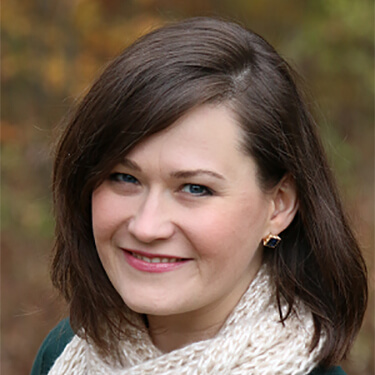
Jessica
Cooke Bailey
PhD
Location
Cleveland, OH, USA
Current Organization
Case Western Reserve University
Biography
I have always been intrigued by science and helping others. My undergraduate degree in biology provided foundational knowledge to appreciate and critically evaluate complexities in life and disease. My undergraduate research experience helped me appreciate academic research, and my passion for inquiry has only grown since that time.
I received my Bachelor of Science in Biology (Honors degree) from Winthrop University in 2008. It was during my time at Winthrop that I realized my passion for research while supported by an NIH: INBRE summer undergraduate research fellowship, which yielded two additional years of studying the molecular evolution of hantavirus and foot-and-mouth disease virus. Determined to learn more specifically about human genetics at the individual and population levels, I entered the Molecular Medicine and Translational Science PhD program at Wake Forest University School of Medicine, where I learned to appreciate the human impact of biomedical research. In my dissertation project, I evaluated the transferability of genetic mediators of type 2 diabetes and nephropathy within and across populations of primarily African and/or European ancestry. During this time, I developed a keen interest in genetic epidemiology research, specifically in diverse populations. Upon completion of my PhD, I sought a postdoctoral research fellowship in genomic “big data,” which I began at Vanderbilt University in October of 2012, supported by a Quantitative Ocular Genomics training grant (T32) position. In October of 2013, I relocated to Case Western Reserve University (CWRU), supported by the Vision Sciences (T32) training program for one year. Upon completion of that fellowship, I was awarded a two year PhRMA Foundation Postdoctoral Fellowship in Informatics. My research focus during my postdoctoral fellowships were on elucidating genetic modifiers of complex diseases, mainly age-related macular degeneration (AMD) and primary open angle glaucoma (POAG). I was appointed as a KL2 Scholar (KL2 Training Program, Clinical Translational Science Collaborative of Cleveland) in July 2016, and was promoted to the rank of assistant professor in the Department of Population and Quantitative Health Sciences in January 2018. My current work is focused on assimilating data across multiple entities to disentangle the multifactorial diseases that comprise ‘glaucoma,’ with the eventual goal of translating the knowledge gained into clinically relevant information. Moving beyond what we have learned from extensive genome-wide association studies and mega meta-analyses primarily in populations of European descent, I hope to integrate trans-ethnic genomic and health data to dissect the genomic and environmental aspects of this disease. My overall research goal is to better understand the complexity of glaucoma risk by assessing genetic, clinical, and environmental differences across ethnic groups to illuminate undetected genetic and non-genetic mediators. By better understanding glaucoma risk factors, we can begin to address crucial health disparities with the goal of informing better disease treatments applicable to diverse populations.



